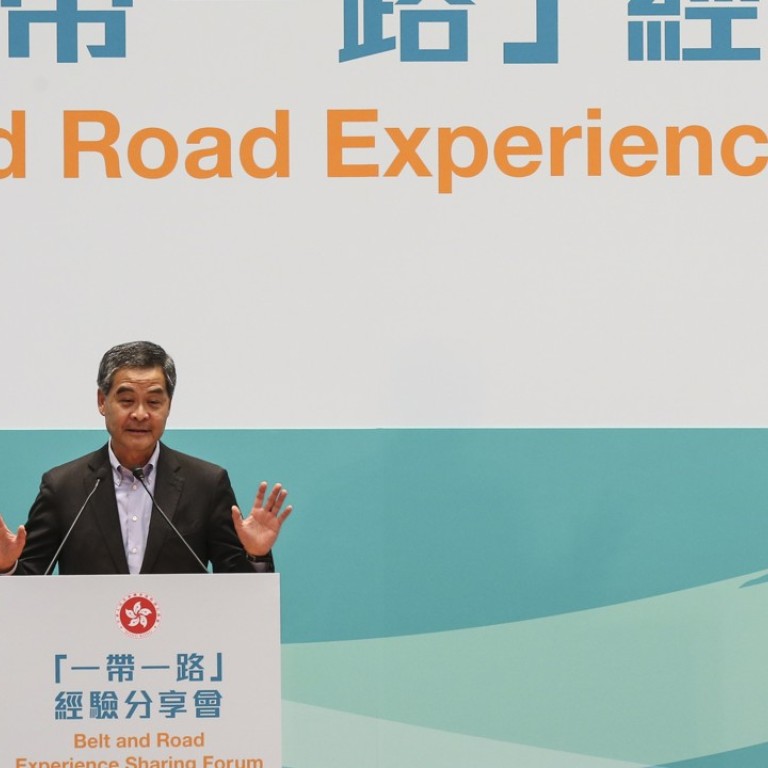
Belt and road gateway: Hong Kong has pivotal role to play in exporting Chinese influence around world
As an international financial centre, Hong Kong can plug lack of funding for infrastructure projects as it offers diversified financing channels and high-end professional services
Beijing’s global trade and economic strategy, the “Belt and Road Initiative”, has generated a great deal of scepticism – and has suffered from a lack of clarity over what it will deliver and who will benefit from it. The initiative is part of a drive by China to export goods, services and influence across Asia, Eurasia, Africa and the Middle East. So where does Hong Kong fit into this?
“One of the key challenges faced by the initiative is the lack of financing. A number of studies have highlighted the huge shortage in funding for belt and road infrastructure projects,” says Ayesha Lau, managing partner in Hong Kong, KPMG China. “As an international financial centre, Hong Kong can play a pivotal role in plugging this gap as it offers diversified financing channels.”


“We also have the required talent pool needed to advise governments on project structuring in order to make them commercially feasible or to assist private investors to bid for and operate projects.”
Aside from the funding angle, infrastructure will require parties with the correct experience, including roads, bridges, railways and underground railways. “In the early stages, infrastructure development will require investment and project contracting, areas where Hong Kong has a lot of experience,” Chan says. “Later, as trade and business develops along the various belt and road corridors, companies will require tax planning, auditing, financial management, governance and risk management, advice on use of capital, and many other commercial consultancy services from professional accountants who are also business advisers.”
The belt and road is a continuation of China’s outbound investment strategy and the export of its excess capacity, and part of a larger strategy for China to increase its global influence
This means that in the immediate term, architects, engineers and surveyors will be needed. Some also see potential opportunities in artificial intelligence, robotics, cloud computing and big data analytics, Fintech and other new technologies. And, while professionals move interchangeably between cities, meaning there is less differentiation between one place or another, Hong Kong can still play a central role as China expands.
“The belt and road is a continuation of China’s outbound investment strategy and the export of its excess capacity, and part of a larger strategy for China to increase its global influence. There is little doubt that there will be benefits for many, but the question is whether that benefit will fall on Hong Kong, as opposed to other cities or regional hubs such as Singapore or London,” says Kanyi Lui, partner, Jones Day, an international law firm.

Many countries along the belt and road are considered developing economies and in need of infrastructure, while having an increased appetite for consumer goods. While Hong Kong has a clear role to play in terms of finance, professionals in other industries, along with entrepreneurs, would do well to examine the risk and reward before entering the market.
Belt and road is subject to several risks in the partner countries, Chan says. These include “harsh terrain, long distances to the market; high costs, slow customs clearance, corruption; competition from initiatives in Japan and India; political instability and frequent violence from Islamic militants and separatists; and challenges derived from its domestic problems, tensions with its neighbours and rivalries with other great powers”, she says.
“Some nations remain sceptical about the practicality and coherence of the large number of belt and road projects, while a number of critics have labelled the initiative a form of neo-colonialism. Some countries even refused to endorse this grand plan due to concerns about China’s commitment to social and environmental sustainability and transparency.”
